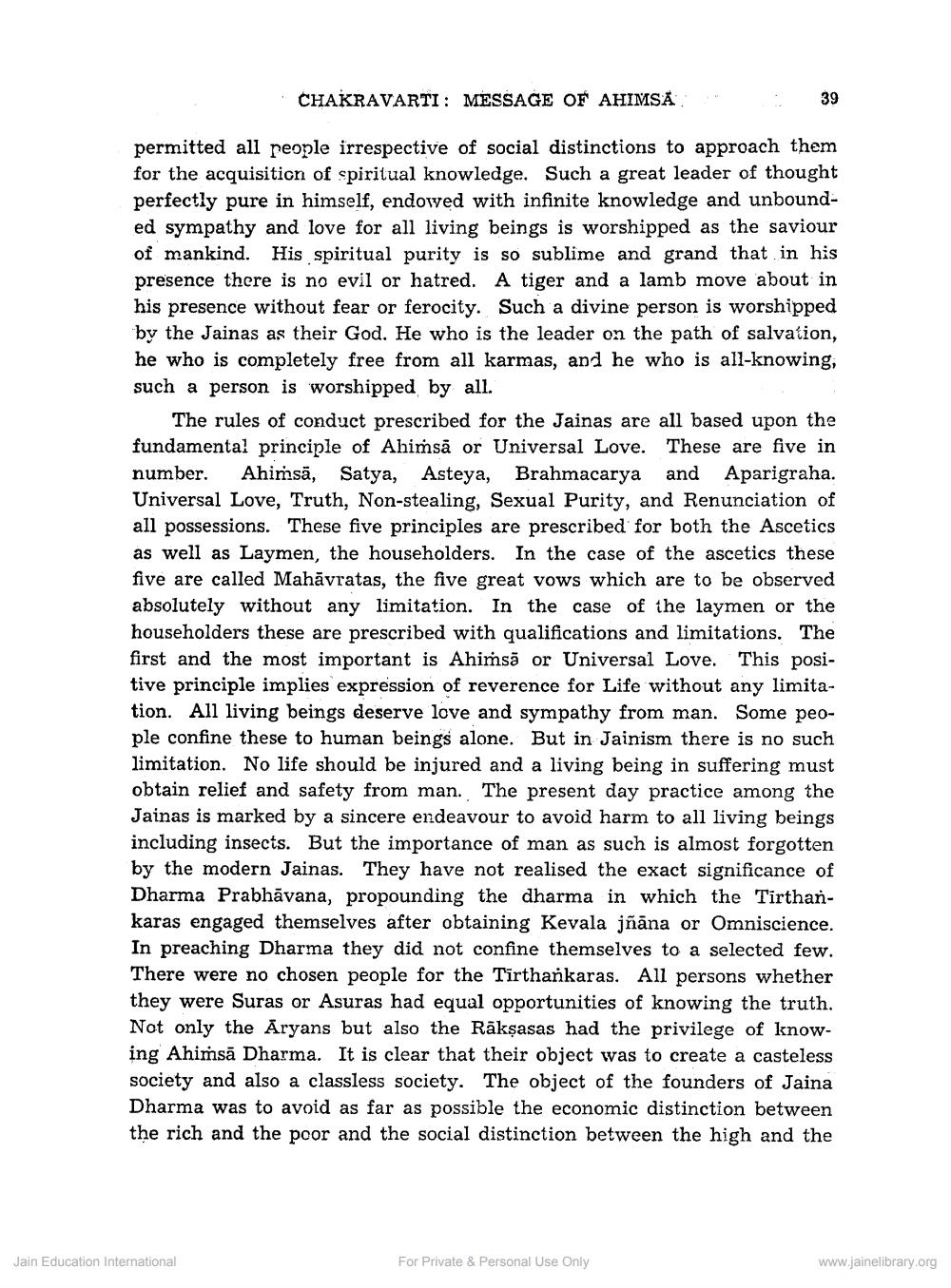Book Title: Message of the Religion of Ahimsa Author(s): A Chakravarti Publisher: Z_Vijay_Vallabh_suri_Smarak_Granth_012060.pdf View full book textPage 4
________________ CHAKRAVARTI: MESSAGE OF AHIMSA 39 permitted all people irrespective of social distinctions to approach them for the acquisition of spiritual knowledge. Such a great leader of thought perfectly pure in himself, endowed with infinite knowledge and unbounded sympathy and love for all living beings is worshipped as the saviour of mankind. His spiritual purity is so sublime and grand that in his presence there is no evil or hatred. A tiger and a lamb move about in his presence without fear or ferocity. Such a divine person is worshipped by the Jainas as their God. He who is the leader on the path of salvation, he who is completely free from all karmas, and he who is all-knowing, such a person is worshipped by all. The rules of conduct prescribed for the Jainas are all based upon the fundamental principle of Ahimsă or Universal Love. These are five in number. Ahimsā, Satya, Asteya, Brahmacarya and Aparigraha. Universal Love, Truth, Non-stealing, Sexual Purity, and Renunciation of all possessions. These five principles are prescribed for both the Ascetics as well as Laymen, the householders. In the case of the ascetics these five are called Mahāvratas, the five great vows which are to be observed absolutely without any limitation. In the case of the laymen or the householders these are prescribed with qualifications and limitations. The first and the most important is Ahimsā or Universal Love. This positive principle implies expression of reverence for Life without any limitation. All living beings deserve love and sympathy from man. Some people confine these to human beings alone. But in Jainism there is no such limitation. No life should be injured and a living being in suffering must obtain relief and safety from man. The present day practice among the Jainas is marked by a sincere endeavour to avoid harm to all living beings including insects. But the importance of man as such is almost forgotten by the modern Jainas. They have not realised the exact significance of Dharma Prabhāvana, propounding the dharma in which the Tirthankaras engaged themselves after obtaining Kevala jñāna or Omniscience. In preaching Dharma they did not confine themselves to a selected few. There were no chosen people for the Tirthankaras. All persons whether they were Suras or Asuras had equal opportunities of knowing the truth. Not only the Aryans but also the Rākşasas had the privilege of knowing Ahimsā Dharma. It is clear that their object was to create a casteless society and also a classless society. The object of the founders of Jaina Dharma was to avoid as far as possible the economic distinction between the rich and the poor and the social distinction between the high and the Jain Education International For Private & Personal Use Only www.jainelibrary.orgPage Navigation
1 2 3 4 5
